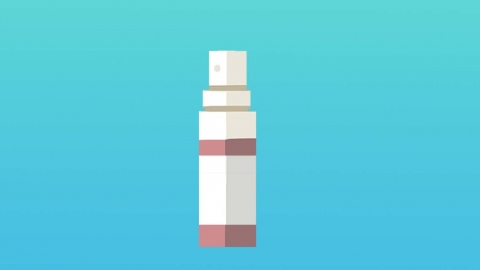What causes a baby to catch a cold and sneeze, and what should be done?
Generally speaking, a cold refers to an upper respiratory tract infection. Sneezing in infants with upper respiratory tract infections may be related to self-protective mechanisms, nasal cavity irritation, drug side effects, allergic rhinitis, acute sinusitis, and other factors. Symptoms can be relieved through daily care and appropriate medication. If symptoms persist for a long time, medical treatment is necessary. Detailed analysis is as follows:

1. Self-protective mechanism
Sneezing is a self-protective mechanism of the body. When an upper respiratory tract infection occurs, the body's immune system may respond to external factors by sneezing. This can be alleviated by appropriately introducing complementary foods, ensuring adequate sleep, engaging in moderate outdoor activities, and thereby enhancing immunity.
2. Nasal irritation
When infants develop upper respiratory tract infections, their nasal passages might be irritated by cold air, leading to frequent sneezing. Therefore, it is important to keep warm, maintain indoor temperatures at around 26℃, and avoid getting chilled to prevent worsening of the condition.
3. Drug side effects
Blind use of nasal sprays during an upper respiratory infection, causing allergies or damaging the nasal mucosa, may also lead to sneezing. It is recommended to promptly stop using the related medications as instructed by a physician or switch to milder alternatives, such as Xiangju Granules, Tongqiao Biyan Granules, or Biyuan Tongqiao Granules.
3. Allergic rhinitis
Allergic rhinitis is associated with exposure to allergens, such as pollen or mites. When an upper respiratory tract infection progresses and exacerbates the allergic reaction, it may cause the aforementioned discomfort. It is usually accompanied by nasal congestion and itching. It is important to avoid allergens promptly and follow medical advice to use medications such as Budesonide nasal spray, Levocetirizine dihydrochloride oral solution, or Montelukast sodium granules for treatment.
4. Acute sinusitis
Acute sinusitis is often caused by the spread of an upper respiratory tract infection to the sinuses. When the condition worsens and increases the amount of purulent secretions in the sinuses, the sinus tissues may become irritated, causing sneezing along with symptoms such as thick nasal discharge and nasal congestion. Treatment may follow physician recommendations to use medications such as Amoxicillin Clavulanate Potassium Granules, Olynumphe oral drops, or Furamidine nasal drops.
It is recommended to treat the upper respiratory tract infection first; if there are other complications, timely targeted treatment should also be administered to alleviate symptoms. At the same time, nasal hygiene should be maintained during treatment to reduce the risk of cross-infection.




